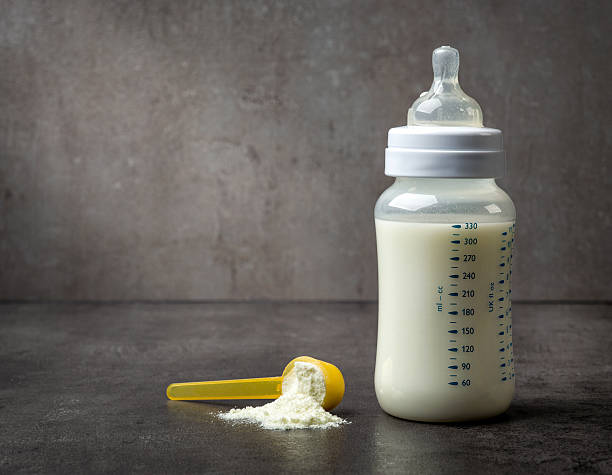Close to 1,000 lawsuits have been filed against major baby formula makers, including Abbott and Reckitt Benckiser (the producer of Enfamil), in both federal and state courts. These lawsuits claim that cow’s milk-based formulas fed to premature infants have caused necrotizing enterocolitis (NEC). Over 500 of these cases are centralized in a federal court in Illinois, with additional lawsuits pending in Illinois, Missouri, and Pennsylvania.
A recent landmark case saw a St. Louis jury award $495 million to the family of a premature infant who developed NEC after consuming Abbott’s cow’s milk-based formula. This significant verdict could set a strong precedent for many other NEC lawsuits still pending against Abbott and other formula companies. In light of the ongoing litigation and safety concerns, Abbott is considering withdrawing its formula for premature infants from the market, with the first bellwether trial expected in May 2025. Families affected by NEC are advised to seek legal guidance to explore options for compensation.
Class Action Winning: NEC Baby Formula Updates – October {{currentyear}}
October 2, 2024: The third NEC-related trial is currently underway in Missouri. A mother from Missouri has brought her case against two major formula makers and St. Louis Children’s Hospital, alleging their cow’s milk-based formula caused her premature infant to develop NEC. This trial marks the first to involve both Abbott and Reckitt as defendants and could impact the nearly 1,000 cases still pending across the U.S.
October 1, 2024: An additional 27 cases were added to the NEC class action MDL in September, raising the total to 598 cases. More filings are anticipated as plaintiffs see positive verdicts in other NEC-related trials.
September 30, 2024: Proposed trial dates are expected to be submitted by lawyers by Friday.
September 23, 2024: A recent NIH-funded study, published in the Journal of the American Medical Association, found that preterm infants fed donated human milk had a significantly lower incidence of NEC compared to those fed formula. This research may bolster ongoing NEC litigation against formula manufacturers.
September 10, 2024: Recent major verdicts have sparked debate among tort reform advocates. A Missouri jury awarded $95 million in compensatory and $400 million in punitive damages in a recent NEC case, while another verdict in Illinois yielded $60 million against Mead Johnson.
What is Necrotizing Enterocolitis (NEC)?
NEC is a severe and potentially life-threatening condition that affects premature infants, primarily those who consume cow’s milk-based formula rather than breast milk. It can cause inflammation and serious damage to the intestines, often leading to serious complications or requiring urgent medical intervention.
Identifying NEC-Related Baby Formulas
Popular formulas like Similac and Enfamil, made from cow’s milk, have been linked to NEC cases in premature infants. A recent 2022 study from Frontiers in Pediatrics highlighted the differences in how formulas affect infant health. Formulas like Similac Special Care, frequently used in hospitals, were found to cause more digestive issues than breast milk or other formulas specifically designed for preterm infants.
Have Any Baby Formulas Been Recalled?
In recent years, Abbott issued recalls of some baby formulas due to contamination risks. In February 2022, certain batches were recalled following bacterial infections, leading to infant fatalities. In October 2022, another recall was issued for select ready-to-feed liquid formulas due to potential spoilage.
Recognizing NEC Symptoms in Infants
If you observe any of the following symptoms, seek immediate medical help for your baby:
- Abdominal pain or bloating
- Unusual lethargy
- Bloody stool
- Feeding difficulties or refusal
- Fluctuating body temperature or vital signs
- Vomiting, especially green or yellow
Prompt medical intervention can be crucial for infants showing signs of NEC.
Risk Factors for NEC
Factors that could increase an infant’s risk of NEC include:
- Premature birth (before 37 weeks)
- Low birth weight (under 5.5 pounds)
- Feeding with cow’s milk-based formula
- Pre-existing illness or infections
- Hospital conditions, like bacterial outbreaks
- Blood transfusions
Studies show that feeding premature babies with breast milk or donated human milk can help lower the risk of NEC.
Seeking Legal Action Through Class Action Winning
If your child developed NEC after consuming formula, you may have grounds for legal action. Many affected families have joined lawsuits against Abbott and Reckitt, alleging the companies knowingly sold formulas with a high risk of causing NEC in premature infants without adequately warning parents.
Class Action Winning can provide support and guidance on seeking compensation for NEC-related damages, helping you navigate the legal avenues available for your case.

Mass Torts vs. Class Actions: Understanding Your Options
Class Action Winning provides legal representation options through both mass torts and class actions:
Mass Torts: Individualized cases are grouped together, each retaining distinct details and damages.
Class Actions: A collective lawsuit represents all affected individuals with similar grievances.
If your infant developed NEC after formula use, determining whether a mass tort or class action best suits your case can be essential to ensuring the best outcome. Reach out to Class Action Winning for a free case review and guidance.

















